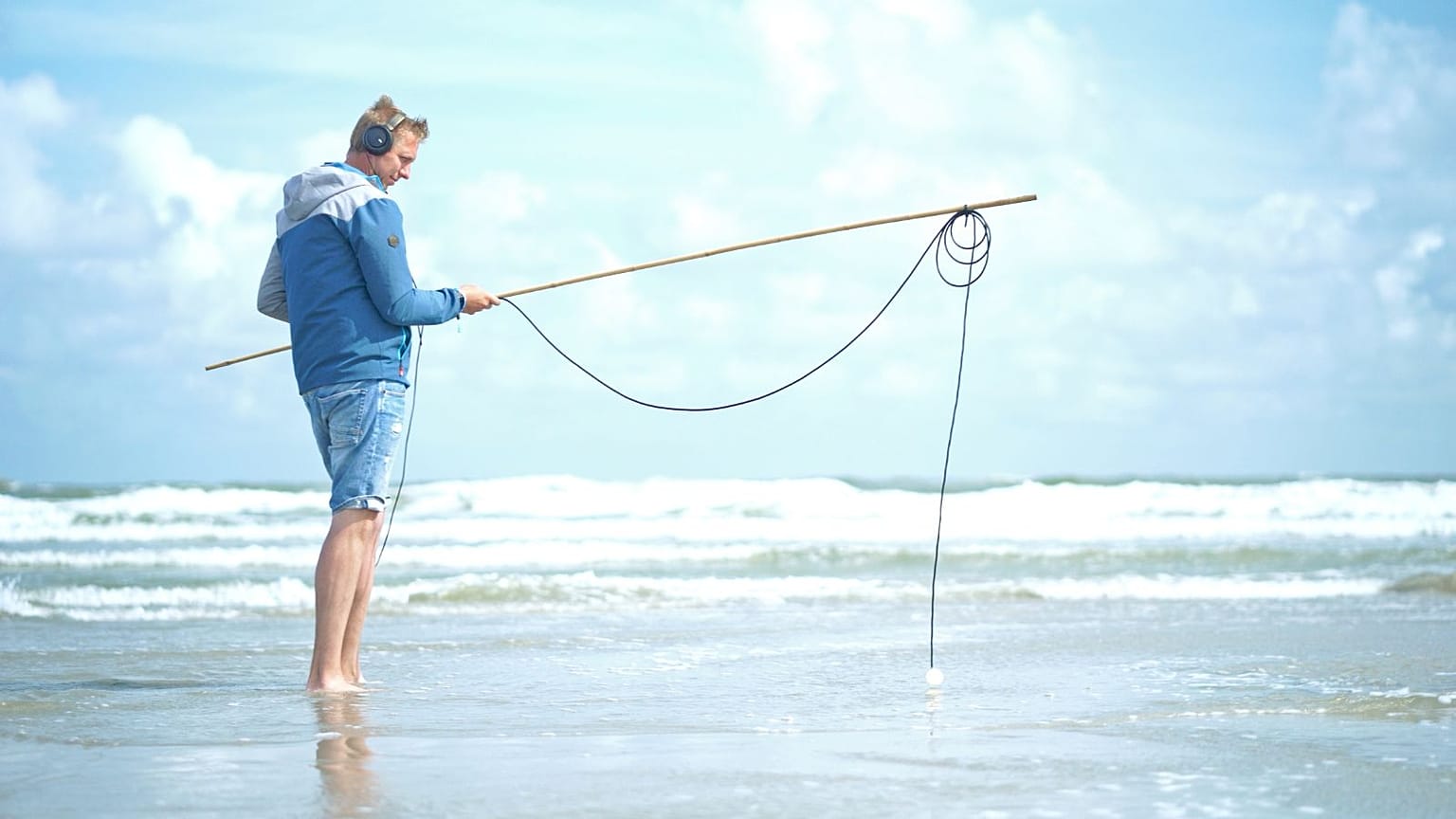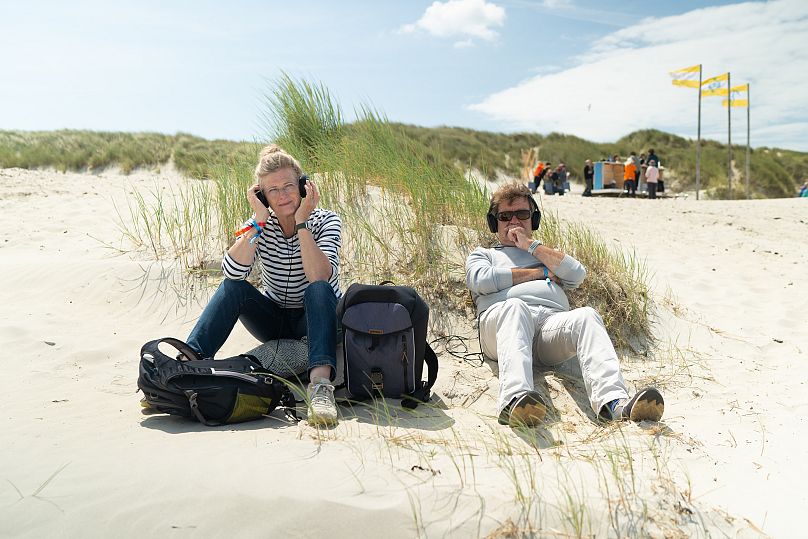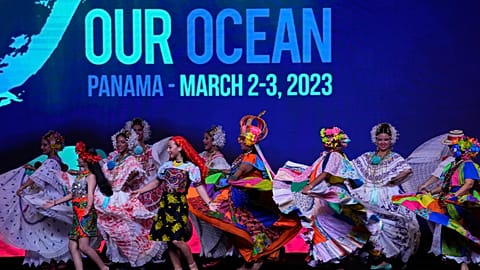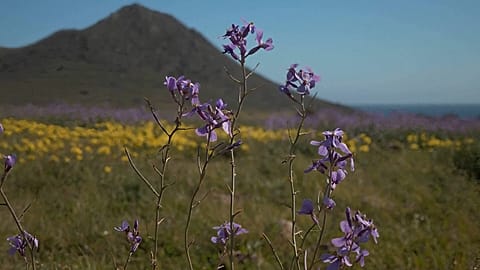Ecuador and New Zealand have recognised the rights of nature. Now the Embassy of the North Sea wants the Netherlands to follow suit.
Should the North Sea have the same legal rights as you? Dozens of artists, philosophers and scientists at the Embassy of the North Sea in The Hague are currently investigating this question.
 ADVERTISEMENT
ADVERTISEMENT
 ADVERTISEMENT
ADVERTISEMENT
They propose that the sea should be recognised as a legal person - just like humans, companies, or states.
Founded in 2018, the Embassy aims to drum up public support and present the Dutch government with “concrete proposals” by 2030, says director of communications Christiane Bosman.
Behind this movement in the Dutch administrative capital is a concern about the impacts of the climate crisis and biodiversity loss on the sea.
Between 1969 and 2017 the average surface temperature of the North Sea rose by 1.3°C.
An estimated 600,000 cubic metres of waste lies on the seabed, and underwater noise from shipping, coastal industries, off-shore oil rigs and wind farms is growing louder.
All of this alters the ecosystem and endangers marine life. While scientists warn that the climate crisis has other impacts on the North Sea and surrounding coastlines that we are only just starting to understand.
What difference would legal personhood make?
Granting legal personhood to the North Sea would enable the sea - with the aid of human proxies - to sue those who violate its rights in court.
“It can make sure that the voices of the North Sea and life within it are heard,” says Bosman.
Dutch civil law does not currently protect nature for its own sake. Humans can only sue in environmental matters if their own rights, such as the right to clean water, are violated.
But that is a problem. For example, while 1.5C degrees of global warming is not yet life-threatening for many people, it is for coral reefs.
To date, only NGOs that can prove they take measures to protect nature can sue in environmental matters.
That was the case in 2021 when Dutch environmental groups successfully sued Shell.
‘The North Sea should have a say’
Embedded in the Embassy’s quest is an existential claim - that the North Sea is a living being, not a bundle of ecosystem services.
“The Embassy's work is based on the idea that the North Sea is not an object over which people can decide. It is a subject and should therefore have a say in whether fishing is limited, whether more wind farms are built or how fossil fuels are extracted,” explains legal expert Laura Burgers.
She is a UN advisor for the rights of nature, and penned an essay on whether the North Sea should become a legal person for the Embassy of the North Sea.
“This is contrary to Western philosophies underpinning legal systems all over the world, which view nature as an object or commodity we can conquer, use, exploit, buy and sell.”
A global movement for the rights of nature
The Embassy of the North Sea is not alone in its quest. It joins a global movement of around 400 initiatives - all seeking to recognise the legal rights of nature.
Known as the ‘rights of nature’ movement, these legal moves are often advanced by Indigenous groups, who “recognise that we humans are not superior to nature but are in a symbiotic relationship with it,” says Burgers.
Examples include the state of Ecuador, which integrated fundamental rights for “Pachamama”, Mother Earth, in its constitution in 2008.
Nature now has a right to be respected, preserved, and regenerated; theoretically, everyone can sue in court if this right is violated or if such a violation is threatened.
New Zealand’s parliament has declared individual natural entities - the Te Urewera Forest, the Whanganui River, and Mount Taranaki - legal entities. Special representative bodies, consisting of Indigenous people and government representatives, have the mandate to speak on their behalf.
To what extent enshrining of nature rights is effective in the long term remains to be seen. And critics warn that western rights-law frameworks risk distorting Indigenous worldviews by trying to integrate them.
Some short-term successes have been achieved, however. In 2021, for example, Ecuador’s Constitutional Court found that mining activities pursued by a state mining company violated the rainforest’s right to exist and flourish.
Enshrining the North Sea's rights in Dutch law is complicated
What could legal representation for the North Sea actually look like?
Integrating it into Dutch law is proving to be a complex undertaking, says Burgers. She suggests that we could “anchor” the legal personhood of the North Sea in the Dutch Civil Code, which defines who counts as a legal person under Dutch law.
But who is going to represent this new legal person? Because the North Sea is unable to stand up in court, a human representative must inevitably do the sea’s talking for it. A human-centered approach is therefore inevitable.
The plaintiff power of personhood also comes with a liability risk. If the North Sea can bring an action against an oil company for polluting it, could citizens in turn sue the sea when flood water damages their house?
The Embassy of the North Sea uses art and research to explore answers to these questions - and to garner public support. “Anyone who wants to push through a change in the law in a democratic society needs support”, explains Laura Burgers.
“Only when we learn to see the world differently can the rights of nature become effective.”


















